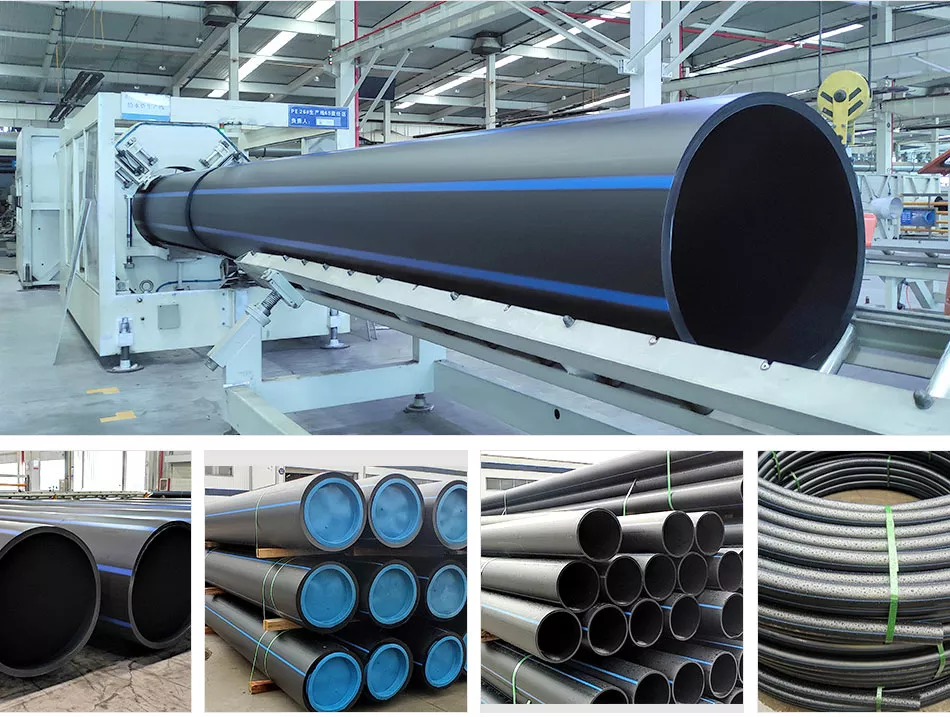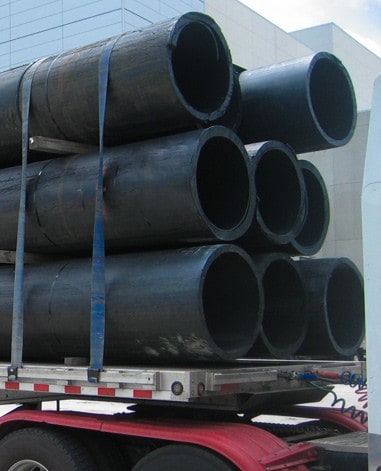The Complete Guide to Pipe Manufacturing Midland TX for Construction
Wiki Article
Recognizing the Key Conveniences of HDPE Pipe for Water and Wastewater Administration
Using HDPE pipeline in water and wastewater management provides many advantages that warrant factor to consider. Its exceptional sturdiness and long life-span make it a recommended selection for lots of tasks. Furthermore, the material's resistance to rust and chemical damages boosts its dependability in various environments. Nevertheless, the advantages extend past simply long life and resistance. Discovering its cost-effectiveness and ecological effect reveals also much more compelling factors for its extensive adoption in modern-day frameworkPhenomenal Toughness and Longevity

HDPE pipeline attracts attention for its remarkable resilience and long life, making it a recommended selection in water monitoring systems. Constructed from high-density polyethylene, these pipelines can stand up to substantial pressure and anxiety, making sure trusted performance over time. Their robust nature allows them to endure severe ecological problems, including temperature level variations and soil activities, which can cause various other materials to stop working.
The life-span of HDPE pipes typically surpasses half a century, offering a cost-effective service for towns and markets alike. Furthermore, the product's light-weight residential properties streamline installment, minimizing labor costs and timeframes. This sturdiness reduces the demand for regular repair work or substitutes, further improving its financial appeal.
In water monitoring applications, the integrity of HDPE pipes means less interruptions and enhanced service connection, making them indispensable to lasting framework advancement. The combination of longevity and longevity strengthens HDPE's duty as a cornerstone in effective water administration services.

Resistance to Deterioration and Chemical Damage
While several materials catch rust and chemical damage with time, HDPE pipes display amazing resistance, making them suitable for different water management applications. This strength originates from the molecular framework of high-density polyethylene, which is inherently non-reactive and does not wear away like metals or break down from exposure to extreme chemicals. Because of this, HDPE is extremely efficient in environments with aggressive compounds, such as wastewater systems that may have acids, bases, and organic solvents.
Additionally, HDPE pipes can hold up against ecological variables such as dirt acidity and saline problems, further boosting their viability for diverse applications (hdpe pipe fittings Midland TX). Their capacity to preserve structural stability over time decreases the risk of leakages and failures, which is crucial in making sure the security and integrity of water circulation and wastewater administration systems. As a result, the resistance to deterioration and chemical damage significantly adds to the total effectiveness and longevity of HDPE piping options
Cost-Effectiveness and Economic Benefits
When taking into consideration the economic ramifications of water management systems, the cost-effectiveness of HDPE pipelines comes to be obvious. These pipes supply lower setup and maintenance costs contrasted to traditional products like metal or concrete. Their lightweight nature simplifies transportation and installation, causing lowered labor expenditures. Additionally, HDPE pipelines show a long life expectancy, often going beyond half a century, which equates to less replacements and long-lasting cost savings.The resistance of HDPE to corrosion and chemical damages lessens the requirement for expensive repair services and substitutes. The pipelines also sustain efficient water circulation, reducing power expenses connected with pumping systems. By alleviating leakages and water loss, HDPE pipelines add to considerable economic benefits for municipalities and industries alike. Overall, the preliminary financial investment in HDPE piping can yield substantial financial returns over the lifespan of the water monitoring system, making it a sensible choice for lasting framework advancement.
pipelines plumbing
Ecological Sustainability and Lowered Influence

Convenience and Flexibility in Installation
Due to their unique properties, HDPE pipes provide amazing flexibility and adaptability in setup, making them ideal for a large range of applications. Their light-weight nature enables simpler handling and transport, minimizing labor costs and installment time. HDPE pipes can be bent and formed to fit numerous surfaces and project requirements, which is specifically beneficial in challenging environments.Additionally, their resistance to deterioration and chemical damages enables installment in varied setups without the need for specialized safety coatings. The capability to fuse joints creates a constant, leak-free system, enhancing the overall honesty and reliability of the installation. HDPE's adaptability also accommodates ground movement, lowering the risk of damage in locations vulnerable to moving soil. On the whole, these attributes make HDPE pipelines not only functional yet likewise a favored option for water and wastewater monitoring systems.
Regularly Asked Questions
Exactly How Does HDPE Pipe Compare to PVC in Water Management Applications?
HDPE pipe supplies superior have a peek at this website adaptability, resistance to deterioration, and resilience compared to PVC. Its lighter weight facilitates simpler setup, while its long life expectancy minimizes substitute prices, making HDPE a favored option in water management applications.What Is the Lifespan of HDPE Water Lines Under Typical Problems?
Under normal problems, HDPE pipes can have a lifespan ranging from 50 to 100 years. Their durability and resistance to rust contribute to their long-lasting efficiency in various applications, making them a trustworthy option for infrastructure.Are HDPE Piping Recyclable After Their Solution Life?
Yes, HDPE pipes are recyclable after their life span. American Plastics HDPE Pipe for Oilfield. They can be processed and repurposed into new products, greatly lowering environmental influence and promoting sustainability within the market, making them a green choice for piping solutionsWhat Is the Installment Process for HDPE Water Lines?
The installation process for HDPE pipes includes website prep work, trenching, pipeline fusion or mechanical joining, backfilling, and pressure testing. Appropriate strategies guarantee a durable and efficient system for moving water and wastewater successfully.Can HDPE Pipeline Be Made Use Of for Both Potable and Non-Potable Water Solutions?
Yes, HDPE pipes can be made use of for both safe and clean and non-potable water supply. Their flexibility, toughness, and resistance to rust make them appropriate for various applications, making certain secure and reliable transport of water in various contexts.Report this wiki page